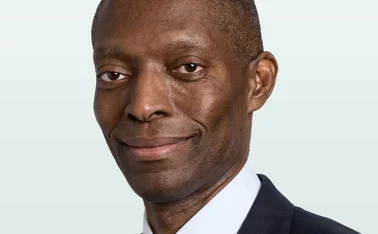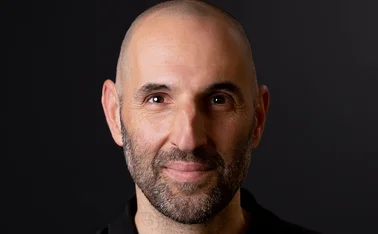
Ferma mulls call for pan-European pandemic solution

Future events causing non-damage business interruption losses on the scale seen during the coronavirus pandemic could require a pan-European approach in addition to national pools and solutions, the president of the Federation of European Risk Management Associations has said.
Earlier this month, Ferma launched a taskforce of senior risk managers from its member associations to address the issue of business interruption coverage for catastrophic risks.
The coverage which is actually available for non-physical damage business interruption is very limited in particular for an event like a pandemic.
Dirk Wegener, Ferma
The taskforce plans to publish proposals by the end of May and hopes to “open a dialogue with all relevant stakeholders, including EU institutions, insurers and brokers, and government bodies” in pursuit of a “holistic solution” to risks such as a future pandemic.
Ferma argues that events such as these are beyond the resources of the private insurance industry and enterprise risk management, and points to public-private partnerships of the sort that exist in some European countries to cover extraordinary risks as a potential solution.
Dirk Wegener, pictured, Ferma president and global head of corporate insurance at Deutsche Bank, told Post: “The added value that Ferma can bring to the table here is twofold. On the one hand, we have our members which are national associations that are in contact with their national governments.
“There are debates across Europe around the question of whether there should be a national pool or a national solution to cover these exposures or, like in the UK for example, whether to broaden the scope of an existing scheme to cover a situation like epidemic.
“We want to give our members the opportunity to exchange their thoughts and to learn from the experience of their sister associations. That’s the first thing.
“The second dimension is that Ferma is also there to cover the European level and to have a conversation with the European institutions. Here we are looking for opportunities or options, in addition to what’s available on a national level, to think about potential additional coverage on a European level. Again, we are building on the idea of public-private partnerships.”
Wegener said that the current crisis had revealed a coverage gap with regard to non-damage business interruption. As standard, many existing BI policies are triggered only when physical damage occurs.
All in all, what we have identified is a coverage gap where the resilience of the European economies is not really supported by the insurance industry and by the coverage available.
Dirk Wegener, Ferma
“The coverage which is actually available for non-physical damage BI is very limited in particular for an event like a pandemic,” said Wegener.
“There are some niche products, for example, here in Germany for certain businesses like restaurants, hotels and for industry. But there’s always the idea that the specific plant, shop or facility has to be contaminated by a virus, and then the authorities close down that particular shop, which does not meet the requirements in terms of coverage that we have right now.
“Even policies which at first sight appear to respond to a situation like this, then do not really do so. Therefore, they are not good coverage from the point of view of the commercial insurance buyer.
“All in all, what we have identified is a coverage gap where the resilience of the European economies is not really supported by the insurance industry and by the coverage available.
“It might be too early for final assessment, but I have not heard of many clear coverage confirmations going out now from insurers to insureds.”
While conversations over the future of BI cover are being conducted through the prism of the current pandemic, Ferma’s taskforce is also considering other events that could prove equally catastrophic to businesses without producing physical damage.
“There are other examples where you don’t necessarily have to have physical damage,” said Wegener.
“Think about cyber, for example, which has the same accumulation exposure, which makes insurers think twice about covering it and which can also be systemic.
I personally found it a little bit irritating that very early on, insurers were basically saying: ‘we don’t think that we have a lot of insured losses. Actually, we believe that we will suffer losses on the capital side, on our asset management side, because our assets will be impaired by the general loss in the financial market.’
Dirk Wegener, Ferma
“For perils which typically cause physical damage, the coverage gap is not as massive as when we talk about non-PD BI.”
Wegener also said that the industry’s initial response to the pandemic, which saw many insurers downplay or deny wide business interruption exposures, had rankled.
“I personally found it a little bit irritating that very early on, insurers were basically saying: ‘we don’t think that we have a lot of insured losses. Actually, we believe that we will suffer losses on the capital side, on our asset management side, because our assets will be impaired by the general loss in the financial market’,” he said.
“These comments might have been premature, and the situation is currently changing a little bit. Maybe insurers have understood meanwhile that it’s not highly appreciated that an industry which is actually there to help people who suffer financial losses caused by sudden and accidental events can basically say to them ‘we have nothing to do with this.’”
Only users who have a paid subscription or are part of a corporate subscription are able to print or copy content.
To access these options, along with all other subscription benefits, please contact info@postonline.co.uk or view our subscription options here: http://subscriptions.postonline.co.uk/subscribe
You are currently unable to print this content. Please contact info@postonline.co.uk to find out more.
You are currently unable to copy this content. Please contact info@postonline.co.uk to find out more.
Copyright Infopro Digital Limited. All rights reserved.
You may share this content using our article tools. Printing this content is for the sole use of the Authorised User (named subscriber), as outlined in our terms and conditions - https://www.infopro-insight.com/terms-conditions/insight-subscriptions/
If you would like to purchase additional rights please email info@postonline.co.uk
Copyright Infopro Digital Limited. All rights reserved.
You may share this content using our article tools. Copying this content is for the sole use of the Authorised User (named subscriber), as outlined in our terms and conditions - https://www.infopro-insight.com/terms-conditions/insight-subscriptions/
If you would like to purchase additional rights please email info@postonline.co.uk
Most read
- Movers and shakers who made Insurance Post’s Power List 2024 revealed
- Has the Biba Conference shed its ‘Butlin’s for Brokers’ reputation?
- Former colleagues pay tribute to David Sweeney








